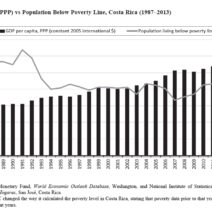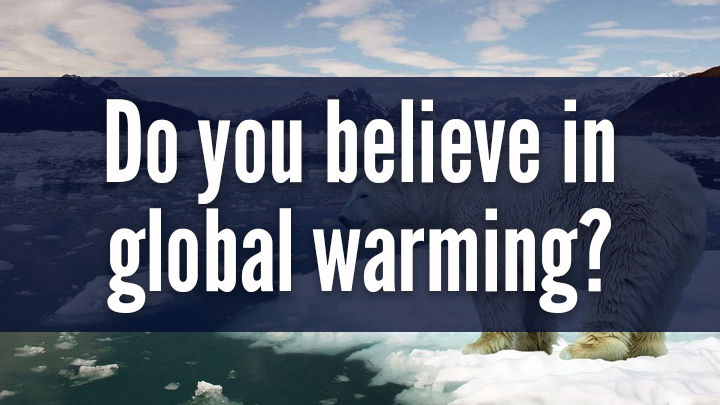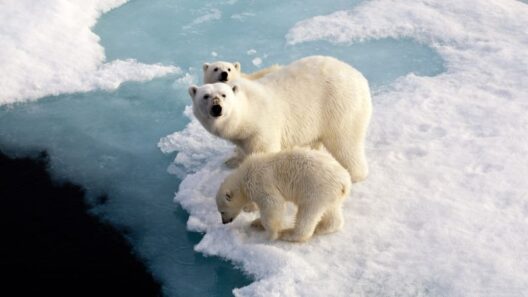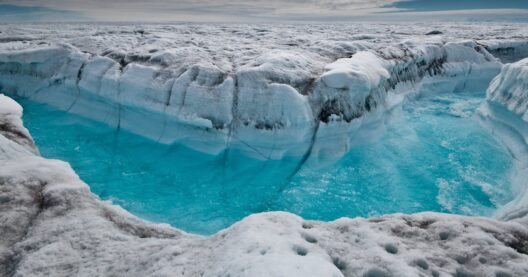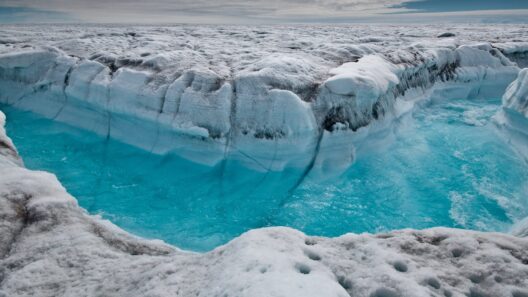The phenomenon of global warming is akin to a slow-burning fuse; its effects are gradual yet profound, igniting a plethora of debates across the globe. As temperatures rise and climates shift, one might wonder how, in the face of overwhelming scientific consensus, some individuals persist in their denial of climate change. To comprehend this cognitive dissonance, we must delve into the myriad factors that foster skepticism and disbelief in global warming.
One of the most poignant reasons for the disbelief in climate change is the deeply ingrained psychological phenomenon known as confirmation bias. Humans, in their intrinsic quest for understanding, often lean towards information that reinforces preexisting beliefs while disregarding conflicting evidence. This blind spot can morph into an impermeable bubble, where the opinions of trusted figures—whether they be political leaders, industry magnates, or cultural icons—supplant scientific facts. Like moths drawn to the illuminating glow of a flame, people gravitate towards narratives that provide comfort rather than those challenging their worldview.
Socioeconomic factors also play a crucial role in shaping perceptions of climate change. Economic dependency on fossil fuels can create a formidable barrier to accepting the realities of global warming. For regions whose livelihoods are tethered to industries like coal, oil, and gas, embracing the notion of climate change may seem tantamount to inviting economic ruin. This precarious tightrope becomes insurmountable; individuals are reluctant to acknowledge the consequences of climate change when their daily sustenance hangs in the balance.
Moreover, cultural identity intertwines intimately with beliefs about climate change. In societies where conservatism predominates, climate skepticism can become a badge of honor. The phenomenon of tribalism invites individuals to align themselves with a collective ethos that shuns progressive narratives of climate science. Thus, the rallying cry of the skeptical community echoes louder than the quiet calls for ecological stewardship. This cultural dynamic renders it challenging to persuade individuals to reconsider their stance on the issue; changing one’s position may feel akin to betraying one’s kin.
The media landscape further complicates the discourse surrounding global warming. The proliferation of information—and misinformation—has created a double-edged sword. Sensationalist news outlets may amplify skepticism and foster confusion by providing a platform for dissenting voices, even when such perspectives lack empirical grounding. The theatrical spectacle of climate debates often overshadows the intrinsic danger attached to inaction. This erosion of trust in scientific expertise can skew public perception; what once seemed evident now becomes convoluted amidst the cacophony of competing opinions.
Compounding these challenges is the psychological distance that many feel regarding climate change. It is easy to dismiss something that appears removed from one’s immediate experience—an abstract concept rather than a tangible reality. The impacts of climate change often manifest gradually, creating an illusion of stability. For some, it is easy to believe that the erratic weather is merely temporary or that the alterations in seasonal patterns are benign. In this context, the specter of climate change does not loom large, but rather fades into the background noise of everyday life.
The role of education in shaping perspectives about climate change cannot be understated. A substantial knowledge gap persists, particularly in regions where formal education systems are underfunded or subject to political intervention. Misconceptions about climate change proliferate when comprehensive climate education is sacrificed on the altar of more contentious curricula. Without the scaffolding of knowledge to underpin their understanding, individuals may find themselves adrift and susceptible to misinformation.
Additionally, the realm of psychological reactance sheds light on the resistance to accepting global warming. When individuals perceive that their personal freedoms are being threatened—either through mandates for sustainable practices or the imposition of environmental regulations—they may instinctively push back. This reactionary stance, rooted in the need for autonomy, can lead to a defensive disposition against climate change. The sense of an impending ecological apocalypse can elicit a flight response, prompting individuals to double down on their skepticism as a means of self-preservation.
The juxtaposition of natural disasters with persistent disbelief in climate change raises further questions. Meteorological phenomena, such as hurricanes, droughts, and wildfires, which have escalated in intensity and frequency, serve as concrete exemplars of the changing climate. Yet, for some, these events are merely viewed as natural cycles, devoid of any anthropogenic influence. This disconnect embodies the larger struggle between observation and interpretation, where perceived randomness masks the deterministic patterns of climate science.
As deniers and skeptics retreat into the shadows of their beliefs, opportunities for productive discourse diminish. Bridging this chasm necessitates empathy, dialogue, and a commitment to fostering understanding. Initiatives that demystify climate science, contextualize its implications, and underscore the shared responsibility to protect the planet can help kindle a more inclusive conversation. A paradigm shift in acknowledging climate change requires not only the illumination of facts but also the nurturing of a collective consciousness that values sustainability as integral to human existence.
In conclusion, the question of why some individuals steadfastly refuse to accept global warming is enmeshed in a complex tapestry of psychological, economic, cultural, and informational threads. As the earth continues to experience the consequences of climate change, it becomes increasingly imperative to engage those who question the validity of the science. Addressing their concerns with nuance and sensitivity can foster a pathway toward greater understanding and collective action, ultimately guiding humanity towards a more sustainable future.
